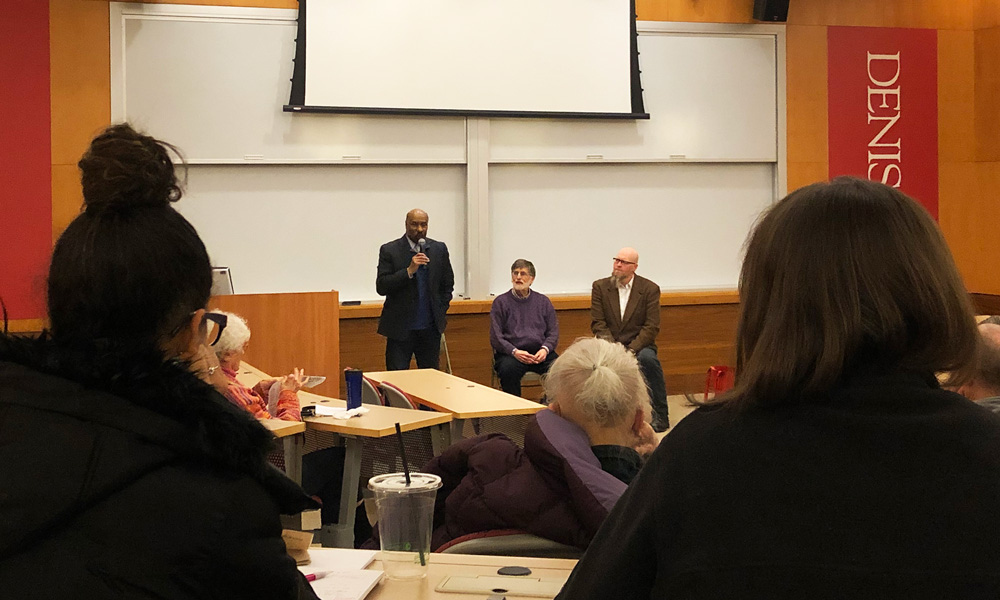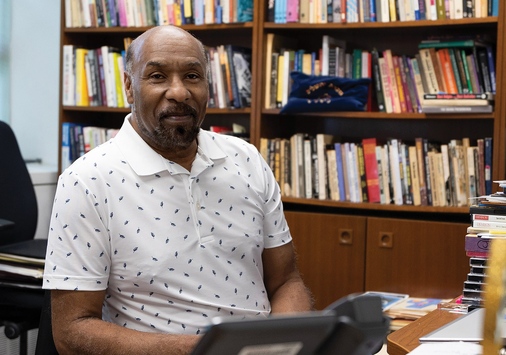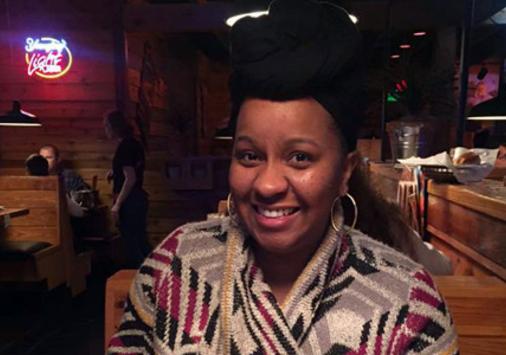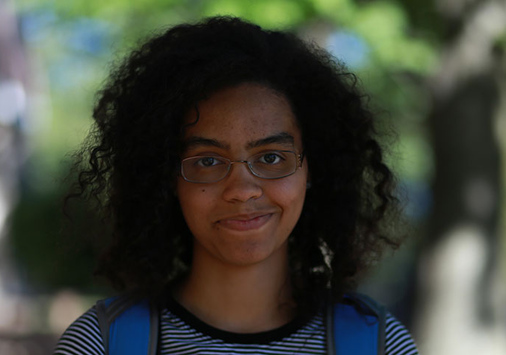
On the evening of March 11, 2019, The Center for Black Studies presented a screening of the documentary Invisible Chess: The Jason Goudlock Story. The film follows the imprisonment of Cleveland-born Jason Goudlock and the unjust changes in Ohio sentencing laws that have made 4,000 prisoners the underclass of the underclass, including Goudlock. Under the new laws, inmates serve eight or nine years for the same crime that put Goudlock in prison for more than twenty. Goudlock is discriminated against by the parole board and is left vulnerable to attacks from new-law inmates who can use violence with impunity, due to unanticipated consequences of “new-law” regulations. The aim of the film is to promote institutional reform, address the inequities of a warped sentencing system, and find justice for Jason Goudlock.
The film was brought to campus by black studies professor Dr. John L. Jackson and shown in conjunction with his “Video, Race and Rights” course. Led by the film producer and director, a stimulating discussion immediately following the film screening featured voices from various constituencies throughout Central Ohio including prisoner family members, released prisoners, social service workers, criminal justice reform activists, former prison ministers and, of course, interested students and faculty.
Invisible Chess is directed by Samuel Crow and produced by William Nichols. Crow studied at Reed College and has worked for two decades as a film crew member and sound technician. He has won numerous awards for music videos, animations, and documentaries. As the head of Crow-Tone Productions, Crow’s primary interest is in using film as a platform for issues of equality and social justice. Dr. Nichols is Professor, emeritus, of Denison’s Department of English. He taught literature, writing, black studies, and environmental studies at Denison for over thirty years and served as an academic dean. He is a co-founder of Denison’s Black Studies Program, whose 50th anniversary will be celebrated during the 2020 academic year. He was educated at Park College, Johns Hopkins, the University of Missouri, and Yale, and has taught as a visiting professor of writing at Dartmouth College. For several years he served on the Criminal Justice Committee with the Ohio American Friends Service Committee. His research interests include poverty, violence, African American literature, Native American oral traditions, nuclear technology, and ecology.
While on campus, Crow and Nichols visited Dr. John L. Jackson’s class to discuss the film and criminal justice reform. In advance of the film screening, Dr. Nichols also was interviewed by WOSU’s Debbie Holmes during a segment of NPR’s Morning Edition. The interview may be heard at WOSU Radio.
The screening and discussion were made possible by the Center for Black Studies’ John Todd Fund, the Department of Religion’s Mary Jane Oestmann Fund, the Department of Philosophy, the Office of the Associate Provost for Diversity and Intercultural Education, the Mellon Writing in Place Initiative and Journalism program at Denison.














